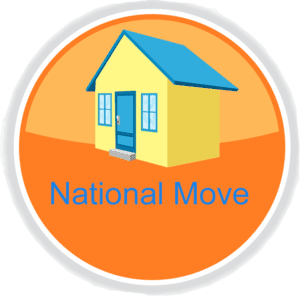How to Find Long Distance Movers – Nationwide Moving 101
Are you looking to find long distance movers, but not sure where to look? Here’s your guide to finding long distance movers in your area.
Maybe you or your spouse have taken a new job across the country. Perhaps you’re moving to be closer to your family. Regardless of the reason, moving is always a stressful process. If the move is long-distance, you can double that stress.
One of the keys to making your move as painless as possible, though, is finding the right movers. How do you find any moving company you can trust, let alone long distance movers?
To make your moving process easier, use these steps to find the best moving company for you.
Your Guide: How to Find Long Distance Movers
Preparing for a big move? Here’s how to find the perfect help:
1. Start Looking for Movers Early
A few months might feel like plenty of time to get everything in order, but the to-do list might be longer than you expect. As you’ll see throughout this list, finding a reliable moving company requires time, research, and coordination. The sooner you start this process, the better.
It’s also important to keep in mind that movers have limited schedules, and those schedules do fill up. The earlier you can choose a moving company, the more likely you are to get the moving date you need.
2. Get Recommendations
The best way to start making your list of possible movers is to get recommendations. Talk to family members and friends who have done long distance moves.
Keep in mind that some major moving companies are franchises. You could have a different experience with one franchise than a friend had at another location. When you get recommendations, make sure you find out the location your friend used.
3. Check Companies’ Reputations
If you want a few more moving companies to consider, it’s time to hit the internet. Look for reviews on a variety of reviews for moving companies on several sites.
When you’re at the point of narrowing down your list, you should check other sources as well. Find out each company’s rating from the Better Business Bureau. You also want to check sites that are dedicated to publicizing bad experiences, like MovingScam.com or RipOffReport.com.
 4. Check Their Qualifications
4. Check Their Qualifications
If a company is offering or advertising a service, don’t assume they have all the qualifications they need. For each company you’re considering, get their US Department of Transportation license number. You should also get their Motor Carrier license number.
Using this information, look for the company in the Federal Motor Carrier Safety Administration database. Movers who handle long distance, interstate moves must be registered with the FMCSA. This same database can also tell you about any complaints against the company.
Keep in mind that some states have additional licensing or registration requirements for movers. Check with your state to find out the details you need to look for.
Another good qualification to look for is membership in the American Moving and Storage Association (AMSA). Membership is voluntary, so don’t cross off companies who don’t have it. However, it gives them a higher standard of ethics and service to uphold, so it’s an added bonus.
5. Request Written Estimates
When you’ve narrowed down your list to three or four companies, it’s time to talk about price. Get a written estimate from each company you’re considering.
In some cases, the movers will ask you a long list of questions to determine your estimate. In other cases, they’ll send out an employee to survey your home and how much you have to move.
As you look at moving companies’ costs, make sure you’re comparing apples to apples. For instance, some movers may have a storage container that you pack yourself and all they handle is the transportation. Other movers will do all the loading and packing for you. Some companies have multiple options based on your budget.
6. Ask About Insurance
Different states have different requirements for the amount of insurance a moving company must have. You don’t want to be left in the lurch if a moving company damages or loses your items and can’t afford to reimburse you.
It’s also a good idea to find out what your homeowner’s insurance or renter’s insurance covers. Many policies protect your items during local moves but not during long distance moves. In these cases, consider buying a moving insurance policy as well.
7. Ask to Look Over a Copy of the Agreement
If time allows, it’s a good idea to ask to review any paperwork ahead of time. You don’t want to get to moving day and feel rushed to sign something you haven’t read.
Planning ahead also gives you time to ask any questions you may have. Some moving companies will give you all this paperwork when they provide your estimate.
8. Find Out What the Company Expects of You
In many cases, your move’s cost depends on how long it takes to complete. You can speed up the process by having your boxes packed, stacked, and organized ahead of time.
Make sure you find out what your estimate assumes. If the estimate assumes you’ll be packed and the movers will only need to load and transport items, you don’t want to amplify your costs by having the movers help you pack.
9. Discuss the Number of Movers You’ll Receive
It’s important to know what to expect before moving day arises. One important factor is how many movers will be helping you.
In most cases, your estimate should reflect this. Many movers charge per hour per employee. If it isn’t specified, though, make sure you find out so you can plan ahead.
Getting Ready for Your Long Distance Move
We know you’re looking at this list like it’s one more extension to your already long to-do list. After all, a long distance move will require looking for doctors, schools, and more as well as the move itself. Trust us, though: a more seamless and scam-free move will be worth the effort.
If you’re ready to start shopping for long distance movers, get your free moving quote and start looking for moving companies today.


 4. Check Their Qualifications
4. Check Their Qualifications
Leave a Reply